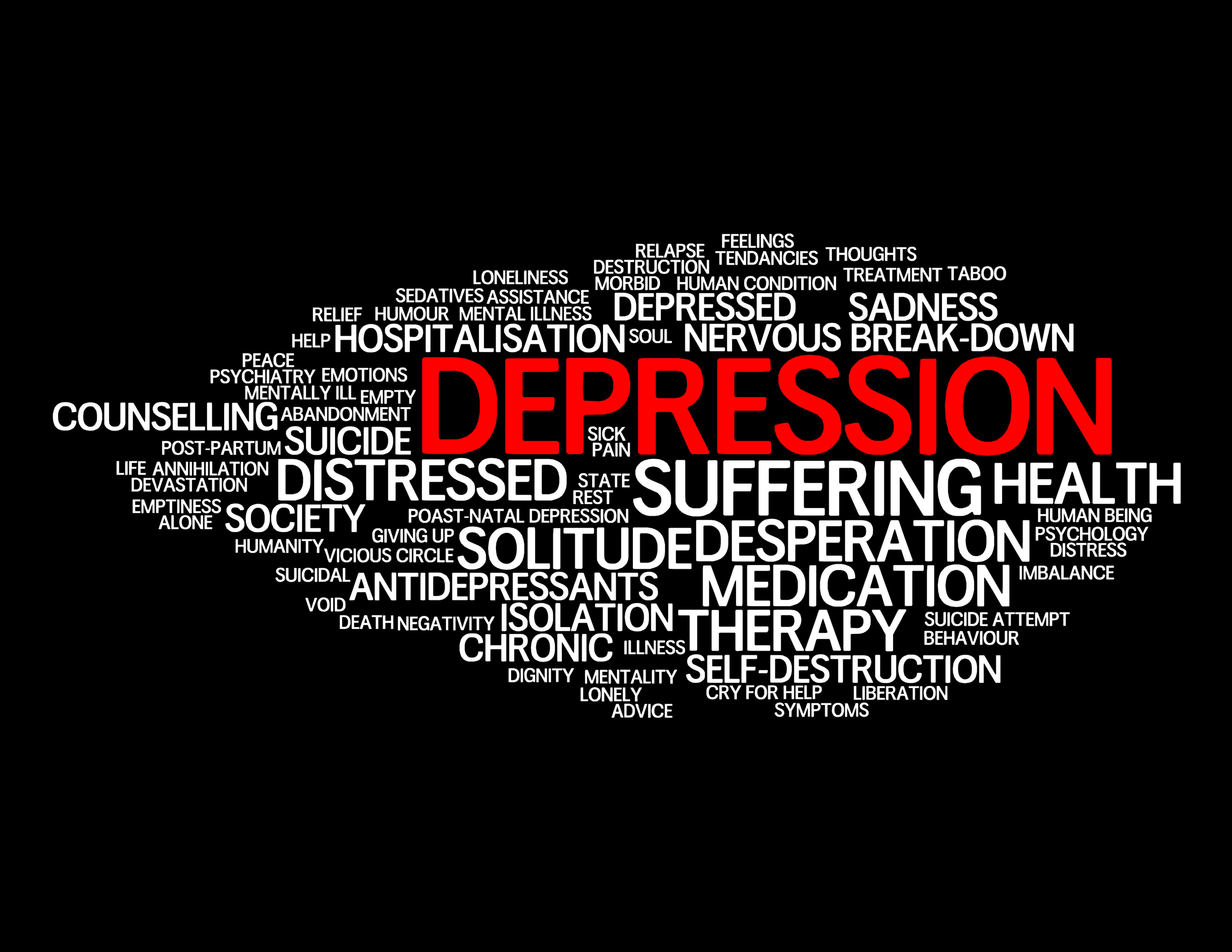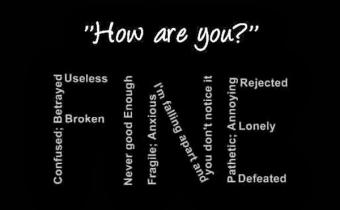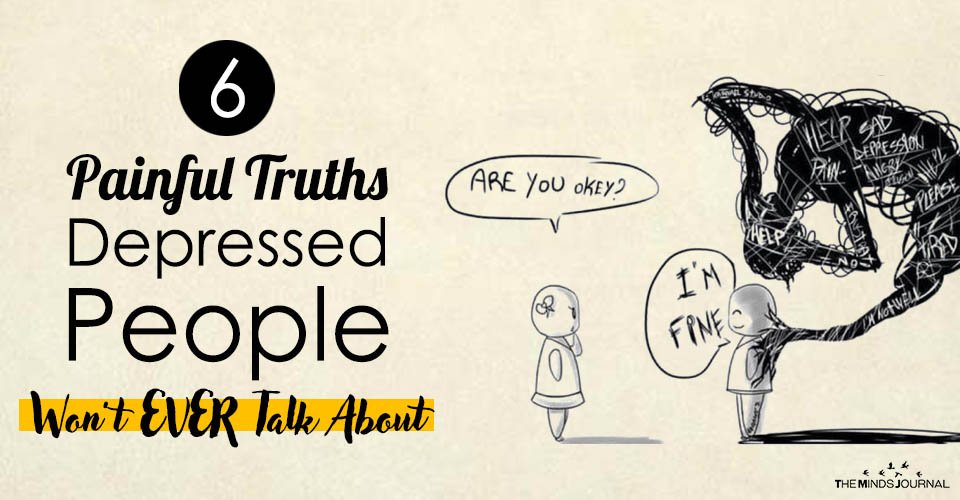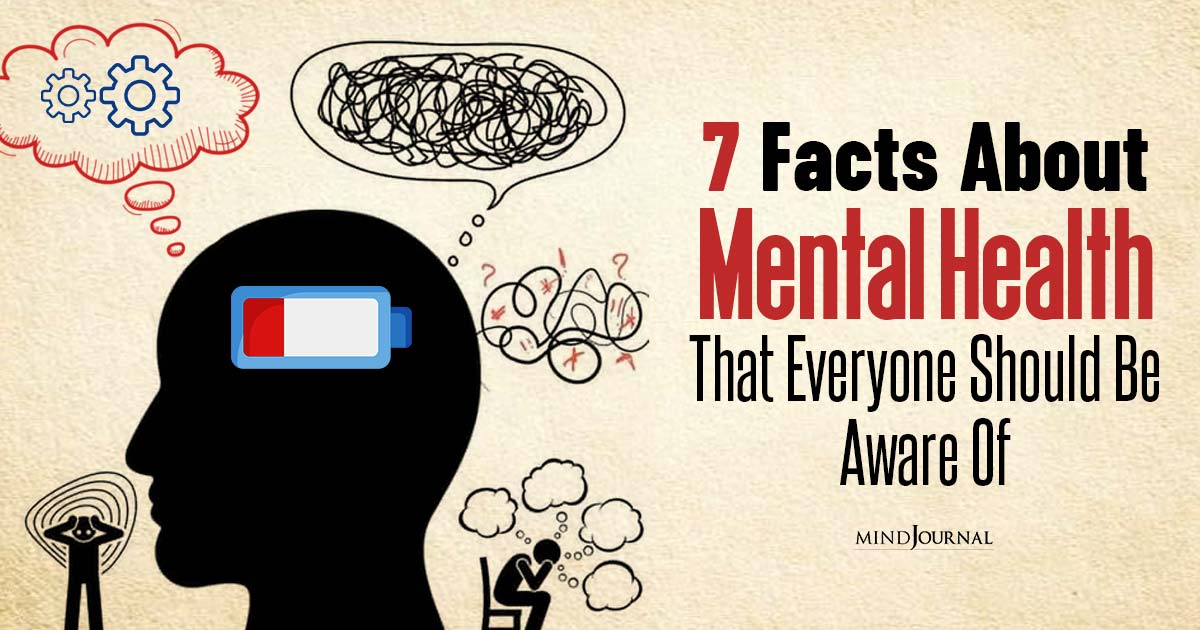Where was depression until the 2000s? Hidden, unacknowledged, mostly not talked about, perhaps in the hope that it’ll all go away by itself. There are some truths depressed people won’t reveal so easily.
Globally, more than 300 million people of all ages suffer from depression, an increase of more than 18% between 2005 and 2015. (1)
Depression is the leading cause of disability and is projected to become the second highest burden of disease (measured in disability-adjusted life years) by 2020, but only a few studies have examined changes over time in the occurrence of depression. (2)

The only catch is that if you’re someone who has had depression in the past, you know well that it frequently leads to self-destruction.
As someone who has been mildly depressed for large parts of her own life, it has been a journey to hear friends talk about their experiences around the condition and to process other ways to live my own life.
Depression is often insidious in nature, a slow killer.
Almost 1 million lives are lost yearly due to suicide, which translates to 3000 suicide deaths every day. For every person who completes a suicide, 20 or more may attempt to end his or her life (WHO, 2012). (3)
Even though all stories do not have the same fatal end but all of them are equally disturbing.
Depression is a common mental disorder with a very high prevalence rate, commonly characterized by:
- depressed mood
- loss of interest or pleasure
- decreased energy
- feelings of guilt or low self-worth
- disturbed sleep or appetite
- poor concentration.
Moreover, depression often comes with symptoms of anxiety. These problems can become chronic or recurrent and lead to substantial impairments in an individual’s ability to take care of his or her everyday responsibilities. (4)
This is 2019, and more than ever, mental health awareness has picked up in scope. Even then, to hear about depression from a depressed person is infrequent. Even if they have the support from friends and family, even if they are aware of their own state, the stigma around mental health is still persistent.
Depression doesn’t always show on the surface. But the struggle within is excruciating.
The following are a few thoughts that depressed people will abstain from revealing to others:
1. “I wish I could do something about my own depression”
It’s a well-known fact that people take life for granted, take certain circumstances for granted. They may well have the feeling that they have complete power over what is happening to them. This attitude is then projected on to a depressed person, telling them “You perhaps brought this about.” But hey, stop right there.
Depression is not a choice.
There is a great deal of discomfort attached to waking up in the morning, feeling all drained, demotivated and wondering if life really had any purpose or that the lingering emptiness won’t ever go.
When a person with depression see how difficult their condition is being for people around them, all they believe is, “I am the root cause of all the problems in my close people’s life.” and tell themselves, “I wish I could do something about my own depression.”
In contrast all they feel is helpless – about themselves and about their condition. They believe nobody, not even their own self can pull them out of the engulfing darkness.
2. “I feel shame that I am not and can’t feel like the rest”
Depression of any kind is a constant reminder that life has come to a standstill just for one reason, while the rest of the world continues to function normally.
Ever wondered what the underlying emotion might be, unprocessed and unacknowledged?
A person with depression often feel guilt across situations- guilt for not being able to take one’s own responsibilities, meet others’ expectations, feel motivated, perform daily activities like before.
Depression, no matter what the cause, can make people feel utterly inadequate and insufficient.
3. “I can’t open up because I am afraid I’ll be misunderstood”
To sympathize with someone’s feelings and situation is entirely different from empathizing with the other person’s feelings.
What a person with depression requires is constant empathy from their support system. One of the fundamentals of a good communication is sound listening capacity, which most people lack.
I’ve often wondered what it is that makes communication between two people really difficult. When one of them has depression, there’s a higher possibility that this fear may be more. Why?
There are multiple reasons for it.
- The person who is in the grip of depression may find it impossible to explain where they are coming from. They may not be able to rationalize the what, where, how and why of their condition. Given how much of the world functions based on reasoning, this can be a dead end.
- They are mostly petrified with the feelings of being an unwanted burden on their family members and their close people.
- The fear is rooted in how the other person might perceive them and their condition, of whether their attempts to explain their condition will be futile or not. The conversation with the people they try to explain too may go into loops, pushing the depressed person into further feelings of helplessness about having to explain their state, without much success.
4. “I am afraid to open up because I’ll feel unheard”
As I write this, I realise that this has been my truth more than once.
Depression can feel like a dungeon, out of which an emergence seems like a distant dream. And when you can’t explain why you are feeling a certain way and that nevertheless the feeling is there, it can be even more frustrating.

Anyone who is depressed might actually not be seeking a magic solution, or to be rescued. What they instead want and need is a patient judgment-free hearing. To be heard for where they are and to not be labelled, questioned or damned.
They want you to listen more than suggest callous and oversimplified solutions.
The things they usually dread hearing from you are:
- “You are not trying hard. If you try to get over it, you can.”
- “Don’t be so sensitive in this harsh world.”
- “This is just a hard phase. You will get over it in time.”
- “This feeling is natural. Life is harsh with all of us. We all feel sad sometime.”
- “Just ignore it!”
- “Go out for a date and find yourself a girlfriend/boyfriend. You will be good to go.”
5. “I would be more positive if I could”
Yes, that’s exactly what many depressed people want to articulate.
Positivity is certainly an ideal state to be in, but consider this for yourself, whether you’ve ever experienced depression or not: is it possible to be positive every day? As an answer you might say yes, which will then take us to “choices”. And this is where you’ll need to remember again depression isn’t a choice.
Depression makes a person lose the ability to construct one’s future or be optimistic about one’s future; it makes one lose the hope and meaning of life.
As we are conditioned to believe that positivity is easy, and it takes just a smile or an intention, it’s unfortunate that in reality, depression does not work that way.
6. “Even if you don’t tell me I’m worthless, I feel it”
The inability to get up from bed, engage in basic self-care and a continuous relationship with medication, are just some of the things about depression that make it so hard. Apart from knocking off the reassurance of routine, the condition can make anyone feel worthless.
Speaking to friends on a personal note as well as people who have worked with those in depression, I’ve gathered it is ‘the lack of participation’ that can be damaging.
This means that someone with depression can have loving family, friend, spouse and co-workers yet feel like they’re not worth making social contacts with them.
Their constant fear is that of getting judged and misunderstood and that of guilt of not being able to live up to others’ expectations and one’s own responsibilities.
Whether you’re someone who has experienced depression in the long run or someone who has known someone else with this condition, knowing that depression is an exceedingly difficult state to be in, is important.
Whether you’re able to articulate it for yourself or help someone else get in touch with their truth, knowing a little more of the unsaid can be beneficent.
Reference:
2. Increasing prevalence of depression from 2000 to 2006.
3. Depression – A Global Public Health Concern
4. Depression – A Global Public Health Concern








Leave a Reply
You must be logged in to post a comment.